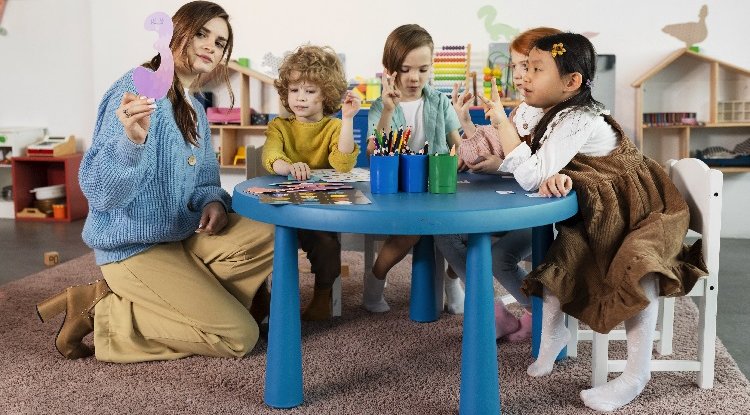For Parents
6 Techniques To Improve Your Child's Working Memory
- Nov 23, 2021
- 0
- 2232

It doesn’t come as a surprise when people say that rote learning is a thing of the past. Modern education focuses on something much more important - practical knowledge and application. In such a scenario, memory training can often take a backseat. However, a good memory doesn’t just help your child learn the periodic table by heart - there are a host of other benefits involved in the mix. These include razor sharp focus, increased brain power and boosted creativity, among others. In fact, many research studies have proven that students who develop their working memory can free their minds to become more creative.
Apart from this, becoming a master of memory can also help students learn new concepts in subjects like math. For instance, if your child has the multiplication table memorised, they can save up on a lot of brain power, and focus on solving the whole equation, instead of struggling to remember what two times five is. This makes one thing crystal clear- children need to develop their working memory to learn better and apply concepts.
In a nutshell, working memory is how we hold, process, and use the information in our brain for a short period of time. Having a good working memory is crucial for children to retain information and broaden their horizons. But, how exactly do you improve your child's working memory? The best way to teach your child something new is by making it fun and interactive. The same goes for memorisation. We have handpicked six engaging techniques for you to try out -
1. Encourage Your Child to Ask Questions
Encouraging children to let their curiosity run free is the first step in improving their working memory. Curiosity fosters a hunger for knowledge, and when your child is eager to learn something, they won’t need to put in much effort to memorise it.
2. Work On Visualisation Skills
Developing visualisation skills from an early age can be instrumental in memory training. To inculcate this skill, children should start imagining and creating a picture in their heads of what they have learned. Using flashcards and games that invoke visual skills is another great way to make learning exciting for your children, while improving working memory.
3. Break Information Into Small Lessons
Your child’s working memory, in the initial stages, is very fragile. Don’t leave them to process a lot of information at once, as it could put a lot of undue pressure on their minds. Instead, help them break information down into small pieces, arranged from basic to detailed comprehension. Organised and bite-sized information will help them memorise without any pressure.
4. Ask Your Child To Teach You
Teaching is an intensive task. It involves reading, understanding, learning and re-learning. This is exactly why it can be a great method to help your child improve working memory. If your child has been given a new topic to study in school, encourage them to teach it to you. This is an age-old method, also known as the Feynman technique.

5. Encourage Active Reading
Ask your child to use colour pens, highlighters and other stationery items to make notes. Doing this activity can help energise their minds and motivate them to take note of important points. You can also encourage active learning by asking your children to read out paragraphs from their textbooks.
6. Connect Information With Interesting Things
Mnemonics are tools that help children connect a difficult piece of information with something that is easy to remember. Poems and rhymes are great ways to improve memory. Using short-forms for certain words can also help them remember the order or parts of any information. For example, if you want to teach them the order of Ni, Cu and Zn on the periodic table, shorten it to ‘nicuzn’, and ask them to remember this word. By using this mnemonic, the order of elements will come naturally to them. Asking children to create their own rhymes, short forms, and mind maps will help improve their working memory drastically.
A good working memory is a crucial aspect in your child’s learning and development. Not only is it important for academics, but it also comes handy in everyday tasks like remembering grocery lists or following directions. If you have an inkling that your child may be struggling with retaining information, then it might be a good idea to introduce a few techniques to improve working memory during their study time.
Tags
Add Comment
Related Blogs

For Parents
4 activities you can do with children to conserve nature
- Mounika Sh...
- Dec 9, 2022
- 0
- 1435

For Parents
UAE: Education group to open four new schools as part of Taaleem IPO
- James Coop...
- Nov 9, 2022
- 0
- 2617
Popular Blogs

Tips for Educators
3 Tips To Apply Classical Conditioning In Classrooms
- Natasha Di...
- Apr 25, 2022
- 0
- 21987

Understanding Concepts
4 Reasons Why Skill-Based Learning Is Important For Students
- James Coop...
- Mar 14, 2022
- 0
- 11305

For Parents
Everything You Need To Know About STEAM Education As A Parent
- James Coop...
- Mar 1, 2022
- 0
- 11253











